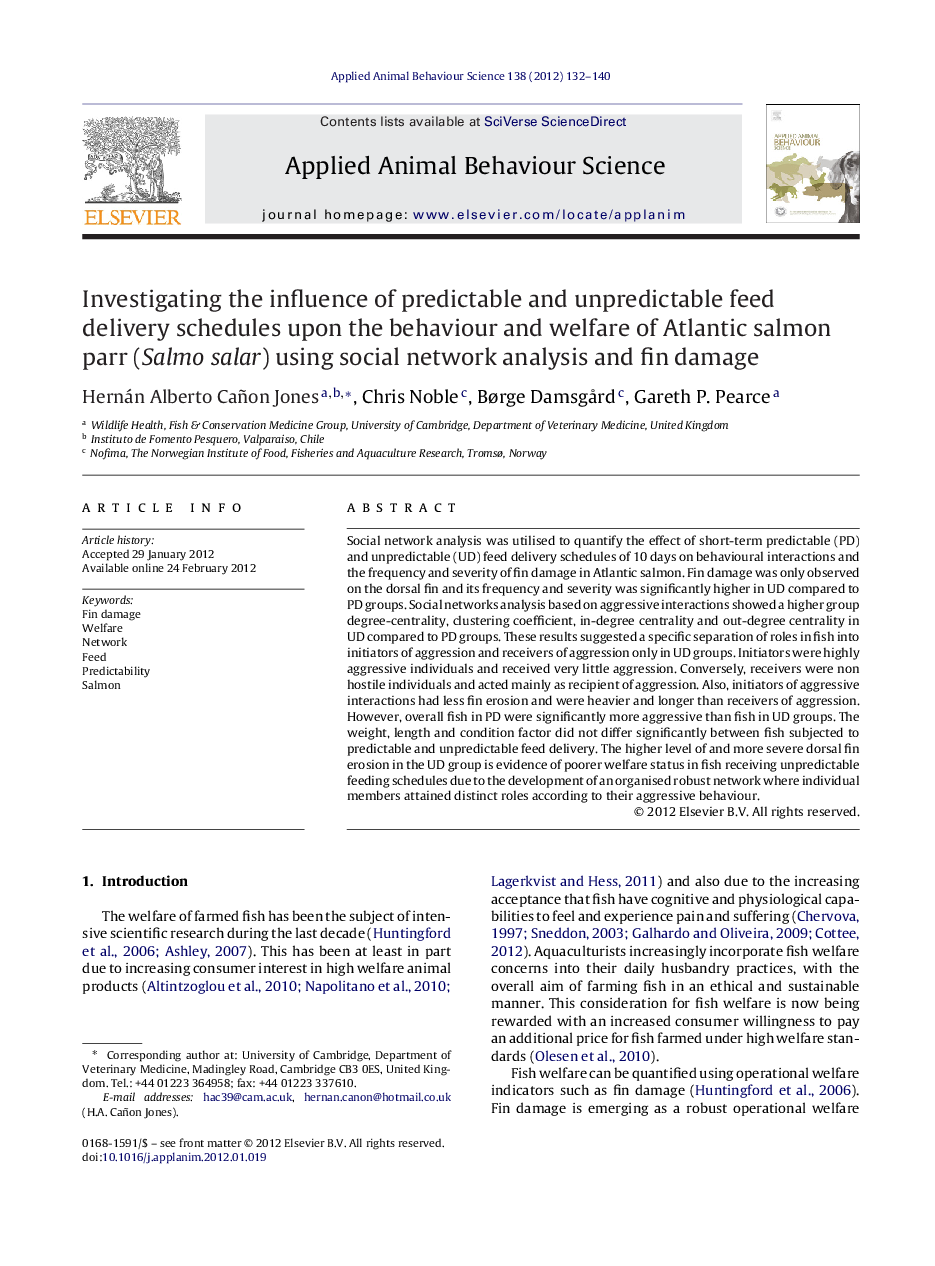| Article ID | Journal | Published Year | Pages | File Type |
|---|---|---|---|---|
| 4522994 | Applied Animal Behaviour Science | 2012 | 9 Pages |
Social network analysis was utilised to quantify the effect of short-term predictable (PD) and unpredictable (UD) feed delivery schedules of 10 days on behavioural interactions and the frequency and severity of fin damage in Atlantic salmon. Fin damage was only observed on the dorsal fin and its frequency and severity was significantly higher in UD compared to PD groups. Social networks analysis based on aggressive interactions showed a higher group degree-centrality, clustering coefficient, in-degree centrality and out-degree centrality in UD compared to PD groups. These results suggested a specific separation of roles in fish into initiators of aggression and receivers of aggression only in UD groups. Initiators were highly aggressive individuals and received very little aggression. Conversely, receivers were non hostile individuals and acted mainly as recipient of aggression. Also, initiators of aggressive interactions had less fin erosion and were heavier and longer than receivers of aggression. However, overall fish in PD were significantly more aggressive than fish in UD groups. The weight, length and condition factor did not differ significantly between fish subjected to predictable and unpredictable feed delivery. The higher level of and more severe dorsal fin erosion in the UD group is evidence of poorer welfare status in fish receiving unpredictable feeding schedules due to the development of an organised robust network where individual members attained distinct roles according to their aggressive behaviour.
